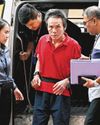
REIMS, France — All most people need to know about champagne is how to safely uncork a bottle. Pouring and savoring the wine are the easy parts.
Few champagne drinkers will interrupt their holiday celebrations to dwell on the laborious process of creating this wine, which can feel so elegant, refined, and delicious.
But in the Champagne region of France now, many producers are adapting a new element to their production method.
They see it not only as a significant improvement in non-vintage champagnes — the vast majority of the bottles produced each year — but also as a major hedge against the effects of climate change.
For many producers, climate change has altered both the way they farm the grapes and how they make the champagne.
First, a bit of background on how non-vintage, or multi-vintage, champagnes are created.
These cuvées are, as the name suggests, blends of several vintages.
To create one, producers will use a base wine from the most recent harvest, itself most often a blend of different grapes from different areas within the region. To this base, producers add wines from older harvests that they have kept in reserve, experimenting and tasting until they find what they consider the best possible blend.
HEDGING AGAINST HIGHS AND LOWS
Why do they do this? Blending wines and vintages permits a producer to aim for stylistic consistency while hedging against the highs and lows of single harvests.
While vintage champagnes vary from year to year, reflecting the characteristics of the growing season, multi-vintage wines are intended to transcend the nature of any single year.
Small producers which have limited storage space and resources may have only a few vintages on hand to blend. Big houses, especially the most prestigious like Krug, have access to far more reserve wines and so are able to create more complex blends.
This story is from the {{IssueName}} edition of {{MagazineName}}.
Start your 7-day Magzter GOLD free trial to access thousands of curated premium stories, and 9,000+ magazines and newspapers.
Already a subscriber ? Sign In
This story is from the {{IssueName}} edition of {{MagazineName}}.
Start your 7-day Magzter GOLD free trial to access thousands of curated premium stories, and 9,000+ magazines and newspapers.
Already a subscriber? Sign In
At least $17.5m lost to 'tech support' scams since January 2024
These alerts pop up on your computer screen, warning you of a virus that has infected your device.

Nomura to rebuild FX options desk stung by exits
At least eight traders have left or gone on leave in past year, leaving just a handful
Coller Capital opens Singapore office and hires private wealth head
Coller Capital, one of the largest global investors in the private equity secondary market, is setting up an office in Singapore amid growing demand from institutional and private wealth investors in South-east Asia.

Lowest UK employment in over a year shows firms are cutting jobs
But wage growth hits six-month high ahead of crunch Bank of England meeting
LTA in the midst of survey to capture weekday travel patterns
To shape the future of transport in Singapore, the Land Transport Authority (LTA) is in the midst of a months-long survey to find out how people are getting around the country on weekdays.
Neurosurgeon sacked for data breach loses suit against SingHealth
He accessed records of 72 patients without authorisation in bid to take down fellow doc

Extremely critical fire risk as winds whip LA
Fire-weary southern California was buffeted on Jan 20 by dangerous winds, with forecasters warning of an \"extremely critical\" risk in a region already staggering from the devastation of horrifying blazes.
Obesity Drug Study Points to Effectiveness in Addiction Control
Findings Do Not Prove Anything About Causality But Seen as Good Starting Point

Ang Mo Kio murder Man accused of killing woman, 67, taken back to crime scene
A man accused of killing a 67-year-old woman in November 2024 was taken back to the crime scene in Ang Mo Kio by police on Jan 21.

NUS Computing expands with new AI degrees, facilities
Undergraduates and postgraduates entering the National University of Singapore (NUS) from the academic year 2025 can enroll in its new artificial intelligence (AI)-focused degree programmes.